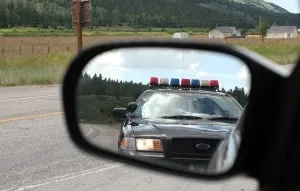 South Carolina has been working hard to combat drunk driving in 2014. Emma’s Law has been passed and signed into law, but with the state maintaining some of the highest DUI rates in the U.S., legislators aren’t stopping there. South Carolina’s latest drunk driving bill proposes setting standards for DUI arrest videos.
South Carolina has been working hard to combat drunk driving in 2014. Emma’s Law has been passed and signed into law, but with the state maintaining some of the highest DUI rates in the U.S., legislators aren’t stopping there. South Carolina’s latest drunk driving bill proposes setting standards for DUI arrest videos.
According to local news station WISTV, there is currently no standard procedure for recording DUI suspects. Some agencies use audio, some don’t, and some don’t even have recording capabilities. Even if law enforcement agencies have recording capabilities, a judge can dismiss a DUI arrest video as evidence if the suspect, say, steps out of the frame for a moment.
However, the proposed legislation would standardize the procedure for recording suspected drunk drivers and change the way judges use the videos in court. Under the new bill, all video taken when a police officer pulls over a DUI suspect must contain audio, whether through the video or a separate audio recording of the stop.
Originally the bill required that video recordings include and “audible” recording. However, executive director of the South Carolina Sheriff’s Association Jeff Moore pointed out that getting an audible recording of a DUI suspect can be hard. According to Moore, audible means that listeners must be able to understand what they hear, but that’s not always the case with someone who’s impaired. “Audible” was changed to “audio” to ensure video can’t be dismissed because listeners can’t understand what the suspect is saying even when he or she clearly sounds impaired.
The bill would also prevent judges from throwing out a DUI arrest video because the suspect might not always be in the frame. Because cameras in police officers’ vehicles are fixed, officers can’t guarantee that suspects will remain in the frame at all times. Ensuring that the videos always contain audio would also come into play here, as it strengthens evidence of impairment in videos where suspects step out of the frame momentarily or cannot be seen the entire time, if at all.
WISTC reports that the South Carolina Sheriff’s Association supports the proposed legislation and believes there’s a good chance it could pass this legislative session. The measure has already passed the House and is currently making its way through Senate committees before it can head to the Senate floor.
